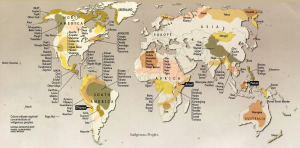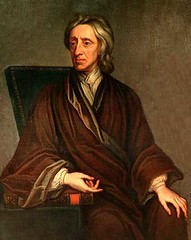1. Racial Capitalism and Colonialism
The Modern Nation-State System
 Reflection 6
Reflection 6
Before you begin, enter your reflection journal and respond to the following questions:
- What does the term nation-state mean to you?
Note: to access your reflection journal please review the Introduction section of the Racial Capitalism and Colonialism module.
The Modern Nation-State System
In the Video 1: Racial Capitalism and Colonialism (1:49) the narrator explains that “To truly understand capitalism, we need to understand its relationship to “race”. To do this, we need to go back, way back, to the beginning of colonialism.” The modern nation-state system is an important piece of this puzzle too.
The nation-states we all live in today, and the borders around them, are not as permanent as they sometimes seem to be. Most modern nation-states are very young, and many nation-states do not include whole populations of people, who rejected the formations of these states from the outset. For example, Figure 1.1 is a map of the world that identifies regional concentrations of Indigenous peoples. How often do you see a map like this?

The modern nation-state system we live in today started through a few processes that begin in Europe: colonialism (as we introduced in the video), the process of enclosing the commons, and a different kind of relationship to religion and the monarch.
So again, here’s where capitalism and colonialism intersect. States desired the creation of private property, which they controlled and profited from economically. They seized that property through military force and by stealing lands from people and nations. Those people were also key to the economic dominance of the nation-state because they worked for low wages, while land, property and business owners reaped enormous profits from their labour.
John Locke

John Locke (1632 – 1704) is an important European theorist that helps us understand the importance of the notion of property to the existence and function of capitalism. Locke is often regarded as an Enlightenment thinker, a key period in European history that created the intellectual foundations for systems of domination, such as colonialism and capitalism. We will return to ideas of the Enlightenment in Module 3. One of Locke’s essays, “Of Property”, explores the notion of property as a principle in the market, and of lands as private property rather than places we might all share. Locke explained property ownership as a fundamental natural right of humanity.
But who was the human to whom this law of nature was endowed? It’s important to ask this question, because up until the 20th century many took for granted who the human was. In order to steal lands from common peoples across Europe, those people had to be deemed inferior, their beliefs and traditions heretic. Christian tradition had long distinguished between notions of the supposedly “bestial” races and those who were human- those who were closer to animals, and those who were rational. This was used as an excuse by feudal lords to take lands from rural populations, who were then flung to the cities homeless, desperate and traumatized, all in the name of private property.
Keep this in mind while watching the video below. While the video does not include Locke’s specific contributions regarding property, it demonstrates his importance in the development of a Eurocentric worldview (often tied to the Enlightenment) that was then imposed on populations around the world through colonialism and imperialism.
 Reflection 7
Reflection 7
Watch the video below and consider the following in your reflection journal:
- How do Locke’s ideas relate to colonialism?
- Who is the “we” referenced in the video? Who might be excluded?
- While Locke’s ideas are presented as a positive contribution to political theory, what may be missing from this portrayal?
Note: to access your reflection journal please review the Introduction section of the Racial Capitalism and Colonialism module.
Recommended Further Reading
- Niigaan Sinclair, “Indigenous nationhood can save the world. Here’s how,” The Global and Mail, September 12th, 2017
- Thomas Peace, “The Nation-State is not what we think it is: Teaching Canadian History from a non-national perspective,” Active History, December 8th, 2014
- Molly Malone, Libby Chisholm, “Indigenous Territory,” The Canadian Encyclopedia, July 5, 2016
 Check Your Understanding
Check Your Understanding
 Music
Music
For a transcript of the lyrics for the song above visit LyricsDB’s page for Child of the Government.
For a transcript of the lyrics for the song above visit Genius’s page for Free.
 Reflection 8
Reflection 8
Open your reflection journal and respond to the following questions:
- Look back on your response from reflection 6, how may your response be different now (or not)?
- Reflect on the ways capitalism, colonialism and the formation of the nation-state are interconnected.
Note: to access your reflection journal please review the Introduction section of the Racial Capitalism and Colonialism module.

